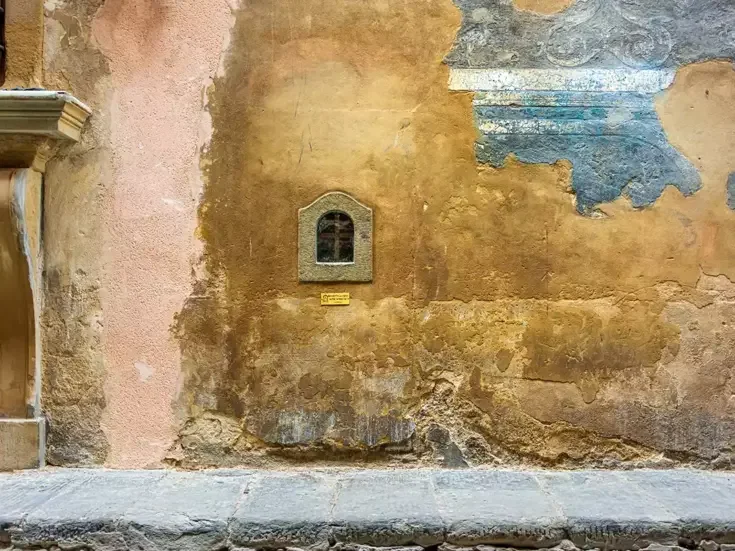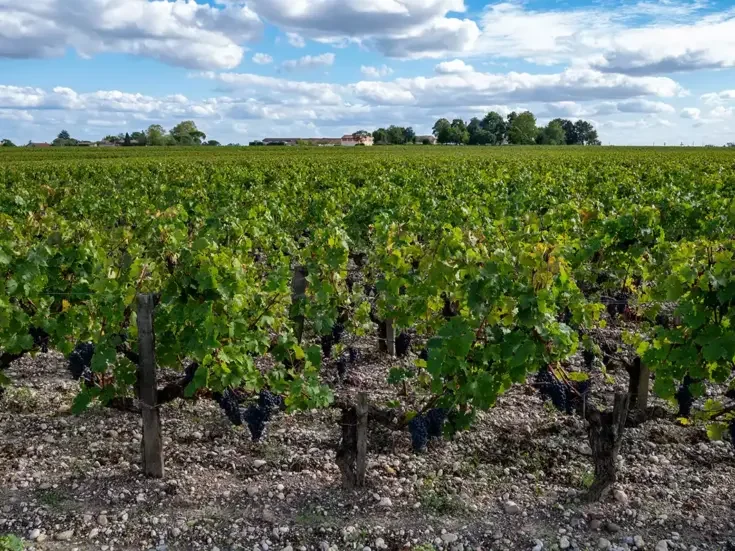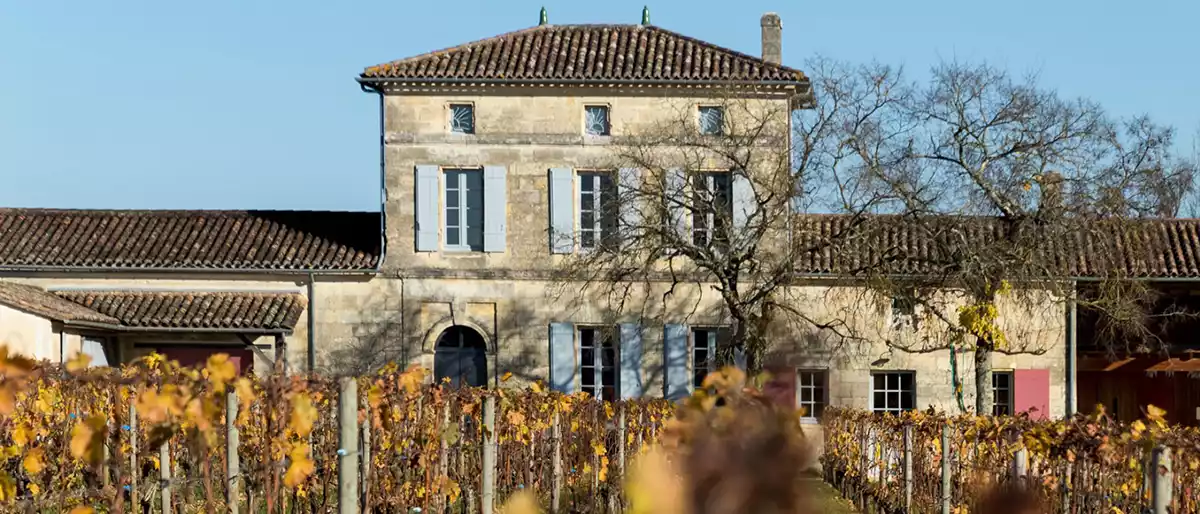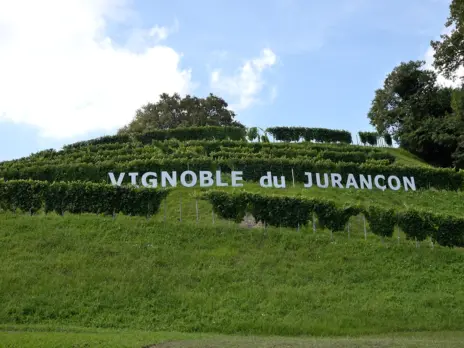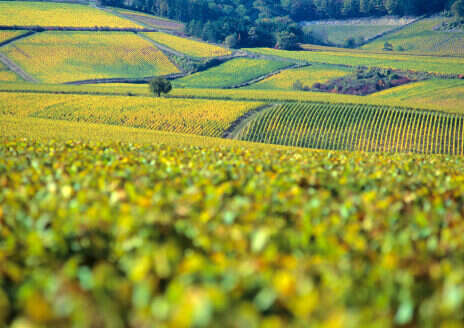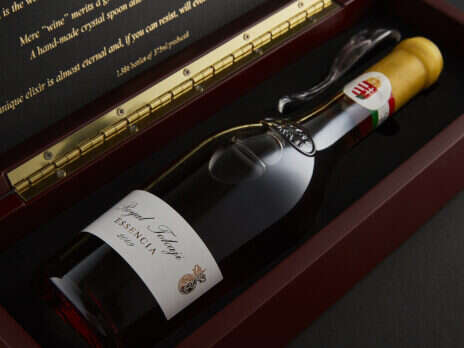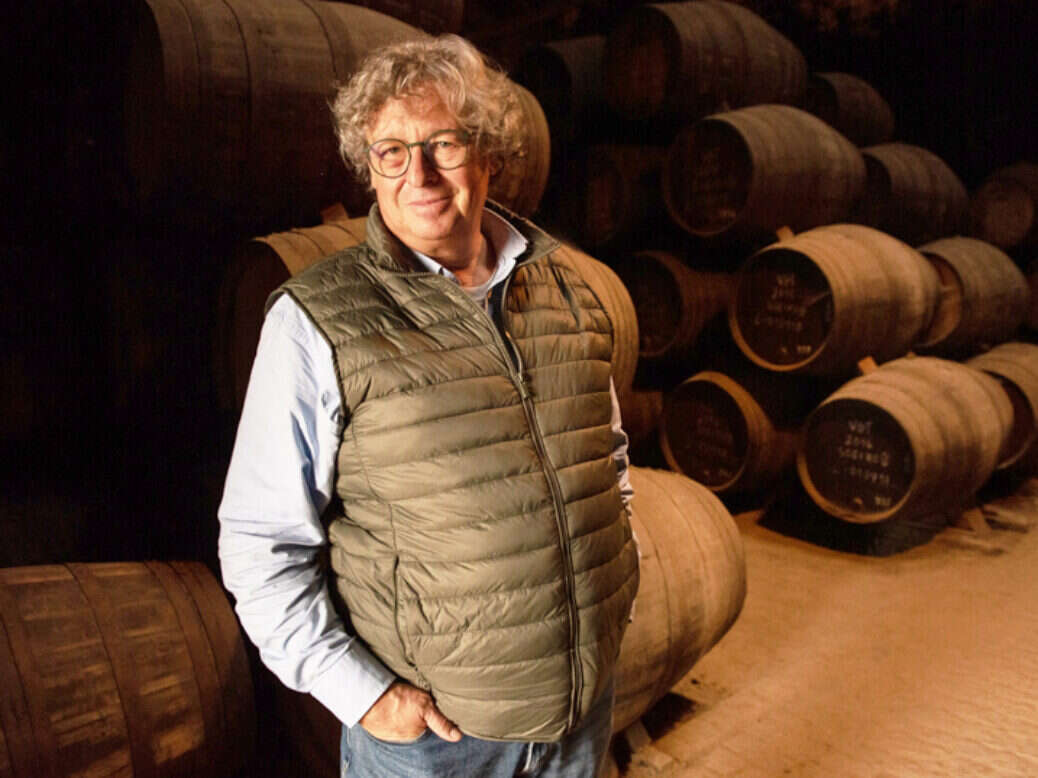
Margaret Rand is given a full tour of the life, times, and family of the restless, endlessly creative, and hugely influential Portuguese winemaker, Dirk van der Niepoort.
Dirk van der Niepoort reckons that his son Daniel is the only person who really understands him. Someone else says that Dirk is the most stubborn person they’ve ever met. He’s been called a visionary, but he denies it; he says he just thinks things through in a way that most people don’t. But he also describes himself as very emotional.
It would be very easy—much too easy—to say that Dirk is full of contradictions. Actually, he’s not: He’s just very precisely himself. He likes people, loves connecting people, and is endlessly hospitable yet not gregarious. He will pour wonderful wines, host dinners and lunches, and then, suddenly, when you look for him, he’s not there. Macavity the Mystery Cat? Perhaps. (But—in case the lawyers look up TS Eliot’s Old Possum’s Book of Practical Cats and start sharpening their quills—only up to a point.)
He has a paw in a great many pies, making wine with this winemaker, then that; here, then there. He’s been married several times, always to women from Germanic lands. His first wife, and the mother of Daniel and Marco, is Swiss; then came Austrian Dorli Muhr, who does PR (including for the Douro Boys, of which Dirk is a member) and now makes wine, in Austria. Now there is Nina, a German; she runs the tea plantation they created in the Minho. It’s Nina’s project, but he says, “It wouldn’t be where it is if I hadn’t pushed her. She said, ‘I’ll do 15 kilos of aged tea.’ I said, ‘Do 150 kilos.’”
But this piece is already in danger of running out of control. Most people, when they agree to be interviewed, have some sort of narrative in mind. Dirk went further: He gave me a full guided tour of himself and his family. I even went to his mother’s funeral. Clearly, he had thought through the whole matter of being interviewed for WFW. “I think from the beginning to the end of a problem in all detail,” he says, in a different context. “What makes me different is that most normal people think when they have a problem, but I think long before, so that when I have a problem, I already have the solution. I’m very fast at making decisions. I’m not scared by holes in the road, because I’ve seen them coming.”
Niepoort: Learning lightness of being
When he joined Niepoort in 1987, the company was stable—not losing money, but not growing, either. It employed 30 people and made only Port and brandy. Now it employs 77 people and makes Port and a lot of table wine. It is, he says, about 35 times the size it was when he joined. “All the things that have happened in the Douro were very clear to me 30 years ago,” he says. “The only strange thing is, why didn’t they happen before?”
He worked with his father for ten years before taking over in 1997. His father, he says, rescued the company from bankruptcy. Then, in 1997, Dirk said, “Let me run it until the end of the year, and if it’s doing badly, you take over. If it’s doing well, then I do it.” It turned out to be the best year ever until then, “especially on the wine side; it grew enormously. It was so obvious.”
However, when his mother told him that his father didn’t need to work any more, Dirk “didn’t sleep that night. Until then I could make any mistakes, and my father was responsible. The idea that now I was responsible scared me to death. I slept two hours, and I woke up very happy, full of energy. I saw myself as the ultimate solution. I am a problem-solving person, and it didn’t scare me. I had to plan properly for the next 20 years, but that’s easy for me.”
What he did, and the reason he is described as a visionary, was make table wine in the Douro earlier, and better, than almost anyone else. “Adrian Bridge (CEO of The Fladgate Partnership) says that the Port pays for the wine. I think we have to think of a wine area called the Douro that combines wine, Port, and tourism.” He has a clear view of a structure with rare, expensive wines and Ports at the top, and below that, brands with volume, at a reasonable price. The top level does not have to be democratic. “This is the most beautiful wine area in the world, and it’s important for people to see and feel the dramatic conditions in which we make wine.”
He made his first table wine in 1990, and Redoma 1991 was the first official wine. “I had to play with it and experiment, and it turned out well.” A white version followed in 1995, and a rosé in 1999. And year by year, so did many others. “I know we make too many,” says Dirk. “It’s the DNA of the company. There are hard-core benefits from the satellite of stupid things that I do; it’s my learning process. The satellites come and go, and some stay. They help a lot in making the hard-core wines better.”
Because this is the crux of the matter: Dirk’s aim has always been to make the company better and more professional, but also to make better wine. “If I’m accused of changing the style of Redoma and the rest, I agree. I want to evolve. I wanted to make lighter wine [at the start], but I didn’t know how to do it. Now I know. Then, 12.5% [ABV] was sacrilege, and I was accused of making it too light, of being crazy, of pushing it too far.”
How did he learn? “I learned just by making it. I’m an idiot. I tasted great wine from around the world, I made wine with great people. Eben Sadie, Telmo Rodriguez, Willie Haag—they’re my mentors in lightness. [Willie] made me understand the incredible lightness of being because of the Mosel wines he made. And Susana Esteban—I changed her life. We got along very well. When she worked in the Douro, she rang me up, and I helped her—not technical help, but I made a wine with her at Quinta do Crasto, which they ignored because it was very light.” (Esteban was winemaker at Crasto 2002–07.)
“The first project she did with someone else was with me. That was Sidecar. One day we were in Portalegre, and I said I didn’t like her wines; she was shocked. I said, ‘I don’t like Alentejo wines, but yours are always the best.’ She’s making very different wines now. I took her with me to Spain and to Burgundy and opened her eyes. I showed her Clos de Crappe, and she hated it: She was very technical and was horrified that I didn’t filter. She suffers with me.”
He would love to blend a Cognac, if anyone is reading this. “Apparently, one of the things I am good at is blending. At least my son thinks so.” Why so? Well, there was that time in Japan…
“I’m in love with Japan, with Japanese people, with the culture, the food, the mentality, which is not always easy.” So much so that now he has a sake to his name: Niepoort x Tanaka 1789 x Chartier. (Tanaka is the sake brewery, François Chartier an aromas specialist.) “The idea didn’t come from me; it came from Chartier, who worked with Tanaka. I wanted to make sake more wine-like.”
So, he and Daniel were tasting, with Chartier and collaborator Nicolas Roché, and because Dirk couldn’t read the labels of anything, he just tasted. “I’m always the first to start tasting and the first to finish. I’m very quick, very concentrated. Forty-five minutes later, I had the blend I wanted. Daniel was astonished but fascinated, and he said, ‘Why can you do this and we can’t?’ They were in love with the blend I did. Chartier tasted it and smiled at me, and he said, ‘Now I know why I’m here. You’re even better than I expected.’”
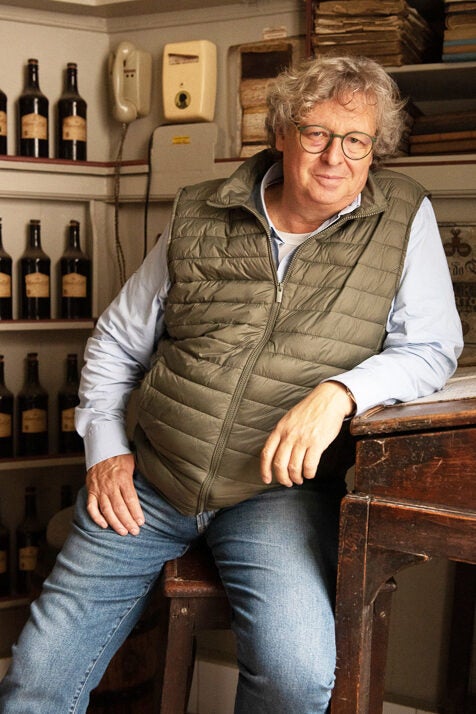
Daring to be different
Daniel was not just there for the ride, however; he now works for Niepoort, having worked in the Mosel for five years, and having worked harvests in various places. There wasn’t any plan that he should join the company, any more than there was for his brother Marco, and neither has a perfectly defined role. Marco works in Germany, at Dirk’s joint venture with Lothar Kettern, which is called Fio; “brand ambassador” is the most accurate job description they’ve come up with for him.
“Daniel wanted to study winemaking; I didn’t push him,” says Dirk. “I don’t help my children until they know what they want. If they want to work in a bank, I’ll help them, but it’s their decision. Daniel said to me one day, ‘Why didn’t you help me in getting a better stage?’ I said, ‘I didn’t want you to work for ____ and become full of shit. You have to decide what you want to do.’ He went to South Africa and rang me; he was with Rosa Kruger and very happy. She’d spent time in Portugal with me; I don’t know how much I influenced her, but I probably did. So, then I started opening doors for him, because he knew what he wanted to do. He went to Australia, Argentina and hated it, and Burgundy, making wine.”
The idea is that Daniel will run the German operation and thus learn how to operate a company. And Dirk’s way of running a company is, like him, unusual. “All the people I have are better than me in my eyes. I’m not scared of people who are good. I have a strange way of hiring people. Most people hire when they need someone. I identify people long before I need them. I observe them, get them close to me, and I hire them when I need them. I don’t want them to adapt to me; I want to adapt to them. I don’t define too closely what their jobs are—I give a lot of freedom to people. At one size of company, you have to have a certain definition of who is responsible for what, but I still have an amount of freestyle.”
He wants me to stress that it’s the team that counts, not Dirk. Of José Teles, the general manager, he says, “He is my wife; he drives me crazy. [‘He’s the nagging wife,’ says Nina; ‘it leaves me free on that front.’] He doesn’t understand me, but he trusts me.” Then there is Beatriz Machado, who handles marketing and tourism, and provides the detailed organization that Dirk sometimes, shall we say, lets slip. “I told her not to protect me, that if I’m being misused I only allow people to misuse me as long as I want.”
At that point in any gathering, he will do a Macavity, and disappear. “I’m an introvert. People assume I like being the center of attention, but I don’t; I suffer when I’m with a lot of people. I just do my job. I like being out in a corner; I don’t like a lot of people with me. At this lunch [a lunch of The Club, of which more later, at the lodge in Vila Nova de Gaia], you’ll see me running away from people.” I didn’t, actually; he doesn’t do it obviously. But like Macavity, he just suddenly isn’t there.
The Club was created at the beginning of 2022. For a fee of €7,000, you get access to special wines, you can have a lunch at the lodge in Gaia with your own cook and your own guests, and you can have your choice of all the Niepoort wines at a discount of 25 percent. That includes some of the many old Garrafeiras, if they’ve been bottled, that are stored in glass demijohns at the lodge. There are (or were; they look quite fragile) 4,000 of them, bought from a German apothecary by an earlier Niepoort and used, along with barrel-aging, to create the legendary 1931 Garrafeira. A couple of vintages are released each year.
The lodge, apart from the glossy new shop, is pretty much how it was in 1900; and even the shop has impressively blackened, cobwebbed windows. “I wanted it left like that—not because it’s better,” says Dirk, “but because it’s how my father and grandfather had it.” Likewise, he’s a believer in talking to older generations of winemakers to tap into their knowledge and experience—and yet curiously, he does not believe in intuition. He doesn’t believe in luck, either. Instead, he believes in thinking; thinking and logic. “I dare more than most, I take risks more than most, but it’s not a risk, because I’ve thought about it before.”
A time for everything
Dirk’s winemaking is of the sort one associates with intuition—indigenous yeasts, unusual blends, super-lightness, trying this and then trying that. However, by his own account, he’s as much a businessman as a winemaker. “I’m Dutch,” he says; “I’m very straight and direct.” Ask him his biggest fault, and he says it might be that he is too direct. That image of the cool, laid-back, rebel winemaker is, he says, not exactly cultivated, but it certainly has an element of conscious choice. It perhaps makes people underestimate him in business matters. Because all those experiments, all the kit in the winery, have to be paid for. And Drink Me pays for a lot of it.
You would be forgiven for never having come across Drink Me. Its German alter ego is called Fabelhaft, and it’s the same wine: mass-market but good, with different names and different cartoon labels in at least 14 different markets. “It’s a very interesting concept; no one else understood it or believed in it, but it works. The greater the quantity, the better it becomes. I love making the wine, making it and selling it. I make it because I like it.” It sells 1.5 million bottles a year. “I’m a fan of Donald Duck comics,” he says. “Dagobert Duck [the Dutch name for Scrooge McDuck] taught me all I know about business.”
Whether Dagobert Duck taught him patience, I do not know, but he reckons that patience is his biggest virtue. “I tell my children that having a great idea is great, but that having the patience to wait for the right moment to do it, and having the guts to do it at the right time… I see a lot of people who have ideas, but they don’t see that it’s the wrong moment.”
Would he put the purchase of Quinta de Nápoles in that bracket? His father bought it because the roads were good and it was convenient, but Dirk opposed the purchase because he thought it wouldn’t be any good for Port. But it has turned out to be very good for table wine; just as the quinta in the Minho that his father bought in 1986 has turned out to be very good for tea.
Dirk opens a wine made from what is now the tea quinta; it’s the 1987, made from cuttings taken from Vega-Sicilia—“It was very open then; they didn’t know” (shades of Macavity?)—and it’s remarkable: savory, silky, concentrated, and fresh. The property is just 2ha (5 acres), about half of it now planted with tea: 12,000 plants, from cuttings and seeds (tea seedlings do not come up true to their parents, any more than vines or people do) taken from all sorts of places, including some from tea trees dating from about 1500. It’s all farmed organically and biodynamically, with nettle spray in spring, chamomile in summer, and horsetail in autumn; and some of it is aged in Port barrels, which gives it a lovely rich Tawny note. It is extremely good.
If you grow tea, why would you not make kombucha? Oh, he will, he will. A launch is planned for 2023. It will need a new bottling line, but he’s planning 20,000 liters to start with. “Usually I do things slowly, but I want to do this immediately, and start big.”
All these projects! How can anybody do them all at once? The answer, at least partly, is that Daniel will be taking over more and more of the day-to-day stuff. “I’m slowing down,” says Dirk, “but it’s all relative. I’ve noticed that even when I do nothing, I still do more than the people around me.” When he’s stressed, says Nina, he goes down to the fish market and talks to the fish women. “You learn a lot from them,” he says.
To return briefly to TS Eliot: “His brow is deeply lined with thought, his head is highly domed,” and he can look, occasionally, a little uncombed. But there the parallels end. Except that—oops! He isn’t there.
